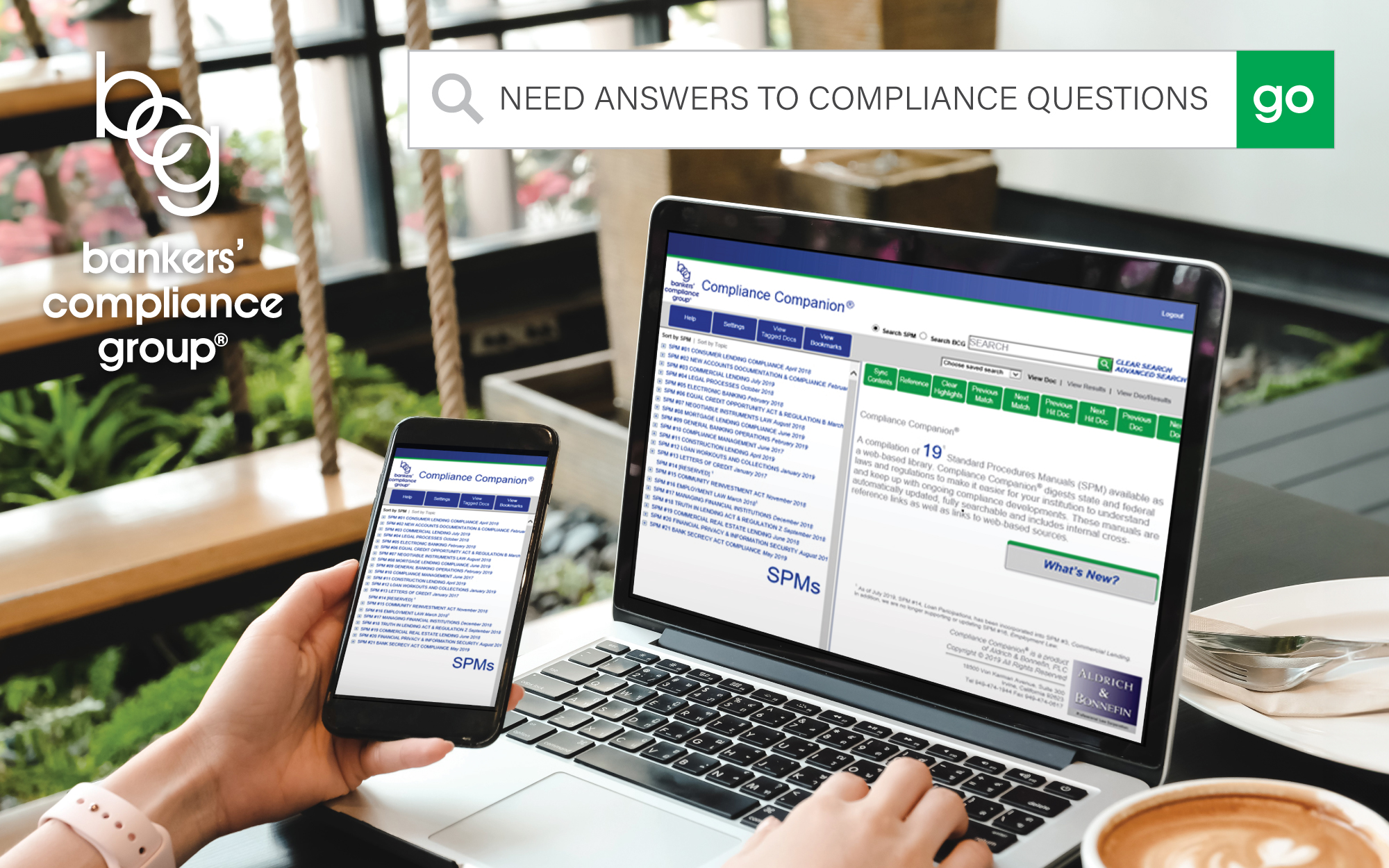Customized, well-thought-out interactions—especially in the online banking space—are integral to wooing new customers and retaining existing ones. We asked several banking leaders how they’ve employed fintech to ramp up their marketing campaigns, hone their analytic strategies and gain new patrons in the process.
Can fintechs enhance your bank’s marketing campaign?
March 01, 2022 / By Katie Kuehner-Hebert
Customized, well-thought-out interactions—especially in the online banking space—are integral to wooing new customers and retaining existing ones. We asked several banking leaders how they’ve employed fintech to ramp up their marketing campaigns, hone their analytic strategies and gain new patrons in the process.
The digital world has opened vastly broader avenues for community banks to attract new customers—especially if they partner with fintechs in their endeavors.
Several community banks and fintech vendors share how such partnerships can help banks find the right prospects and then onboard them successfully to increase the chances they’ll continue to deepen their financial relationships.
“Fintechs know how to reach and work with the community. Their ability to market and add banking functionality … is a natural fit.”
—Jeff W. Dick, Chairman and CEO, Mainstreet Bank
MainStreet Bank’s BaaS move
MainStreet Bank in Fairfax, Va., chose to offer Banking-as-a-Service (BaaS) to find appropriate fintech partners with users who could also potentially become customers of the bank, says Jeff W. Dick, chairman and CEO. The $1.7 billion-asset community bank is now revamping its BaaS capabilities by developing its own “fintech core,” Avenu, with a soft launch in the early third quarter of 2022.
“We are focused on working with fintechs that have a great app for the target market they serve, where adding payments, value storage or fee processing is a logical next step for the app,” Dick says. “The fintechs know how to reach and work with their community, so their ability to market and add banking functionality to their app is a natural fit.”
One current MainStreet Bank beta fintech client, Kincrew, provides a “co-parenting” app for divorced or separated parents and affected relatives. Using the app, they can communicate and share calendars—and will soon be able to make payments to one another, he says.
“Each household will have one or more accounts attached to it so that they can make payments to each other for their portion of violin lessons or new glasses,” Dick says. “Those accounts will be held in Avenu for Kincrew,” thereby increasing deposits and fee income for the bank.
To increase security, Avenu uses cloud-native architecture that integrates a ledger, customer identification, transactional fraud monitoring, BSA and AML monitoring, ACH account identification, report writing and an integrated complaint management system, Dick says. It already supports blockchain if required by a fintech.
“One of the key problems we’ve seen until now is partnering with a fintech company only to find that, once operational, they changed their focus—potentially adding significantly to their risk profile,” Dick says, adding that it’s much less likely to happen with Avenu. “Our technology, combined with the training that we provide, will result in a best-in-class solution. With Avenu, we’ll be able to work with a broader range of fintech partners than through using traditional methods.”
Coconut Software’s queue buster
Attracting new customers often involves making it easy for them to book a time to meet with the right person at the bank who can fulfill their need in whatever digital format they choose.
Coconut Software in Saskatoon, Saskatchewan, Canada, is one fintech solving this problem for community banks. It offers digital appointment scheduling; lobby, management and contact center functions; as well as solutions like Reserve with Google and in person, phone and video appointments, says Romeo Iula, co-founder and chief technology officer. Each of these solutions has reporting and tracking to allow bank marketing teams to tie their marketing campaigns to the appointments booked with a staff member or visiting a branch.
“When I talk to folks at community banks, I consistently hear that customers are evolving,” says Iula. “They expect choice, convenience and an experience personalized for them. Our solutions make it simple to provide community bank customers and prospects with the tools to engage seamlessly, from easily booking appointments online, at a time and in a method that is most convenient, to streamlining busy branch queues.”
IncredibleBank’s valuable customer data
IncredibleBank in Wausau, Wis., has been successful in attracting new checking account customers through its “refer a friend” campaigns, says Kathy Strasser, executive vice president, chief operating officer and chief information officer of the $1.7 billion-asset community bank. Currently, the bank is evaluating a fintech’s marketing campaign management platform that will track multiple programs simultaneously without increased employee resources or advertising dollars.
IncredibleBank also employs technology that makes it easy for customers to open accounts digitally in under five minutes, using fintech solutions to address potential fraud in the account opening process, she says.
“While we have been very successful to date, we have recognized we lack insight into our customer relationships, and overall engagement with the bank’s products and services,” says Strasser. “Without the proper use of the data, we know we are missing opportunities to grow our customer relationships. Getting our arms around the data is our next step, and we are looking at fintech solution providers to help us do this.”
The bank is evaluating various solutions, including KlariVis, an ICBA ThinkTech Accelerator finalist, that will allow it to aggregate and normalize all the bank’s disparate data about customers, says Strasser. The intent is to gain better insight into customer behavior for more successful target marketing of its various products and promotions.
FI Works’ intelligent targeting
FI Works in Little Rock, Ark., provides a data analytics, marketing automation, and sales and service platform that enables banks to target customers with relevant offers by “intelligent targeting” via machine learning, says Keith Henkel, founder and CEO.
“We recently signed up a small community bank in Georgia that serves small business customers,” Henkel says. “[Their bankers] need the right tools at their fingertips to know what products and services a particular prospect likely needs.”
FI Works’ platform can incorporate multiple sources of customer data, a community bank’s own list of potential leads and prospect lists that FI Works acquires on behalf of the bank.
Through predictive analytics and intelligent targeting, the platform helps banks identify which customers need which products at which times. Banks can monitor progress across the bank with work queues, scorecards, dashboards and other reporting tools.
“Everything is connected,” Henkel says. “Whether a bank is doing outbound marketing using email addresses or whether they’re buying lists, all of that is on one platform so they don’t have to jump around in multiple systems.”
Personalizing Rockland Trust Co.
Keeping customers and strengthening a bank’s relationship with them will be easier if customers can forge personal relationships with their chosen banker.
To this end, Rockland Trust Co. in Rockland, Mass., last year began partnering with fintech Agent IQ to create YourBanker, a digital tool that allows customers to chat and share documents securely with their own dedicated banker from their mobile device or computer, says Patrick Myron, senior vice president of retail network strategy and sales analytics for the $20.4 billion-asset community bank.
According to Myron, since its launch last May, customers have logged into YourBanker more than 44,000 times.
“Customers can establish digital relationships anytime, anywhere with their bankers, who will help provide them with everyday banking support,” Myron says. “We look forward to continuing to enhance our customer relationships in 2022 with interactive tools like YourBanker that help make banking with Rockland Trust easier and more accessible.”
The digital tool is powered by Agent IQ’s Lynq, which offers authenticated personal messaging via mobile app, SMS and other digital channels, says Slaven Bilac, cofounder and CEO of the San Francisco-based fintech. When appropriate, the engagement can be escalated to a video call and/or a co-browsing session.
“When the primary banker cannot answer the customer’s question, she can invite a subject-matter expert into the conversation to help the customer, so help comes to the customer and is seamless from their perspective,” Bilac says. “Mobile messaging allows the sending of app notifications to the customer, so customers don’t need to actively wait for a reply from the banker but are notified when a reply becomes available.”
Biometrics-based authentication removes the need for customers to answer repetitive questions, and the ability to continue talking to the same banker makes sure the context is preserved over multiple interactions, he says.
“Developing a relationship with customers through mobile messaging makes it possible to be proactive in reaching out to them, and not just waiting for incoming requests,” notes Bilac. “Data shows that more than 97% of mobile messages are read within a few minutes. Proactive outreach can really delight customers and opens the possibility for previously unattainable levels of service.”
Subscribe now
Sign up for the Independent Banker newsletter to receive twice-monthly emails about new issues and must-read content you might have missed.
Sponsored Content
Featured Webinars
Join ICBA Community
Interested in discussing this and other topics? Network with and learn from your peers with the app designed for community bankers.
Subscribe Today
Sign up for Independent Banker eNews to receive twice-monthly emails that alert you when a new issue drops and highlight must-read content you might have missed.
News Watch Today

Join the Conversation with ICBA Community
ICBA Community is an online platform led by community bankers to foster connections, collaborations, and discussions on industry news, best practices, and regulations, while promoting networking, mentorship, and member feedback to guide future initiatives.











